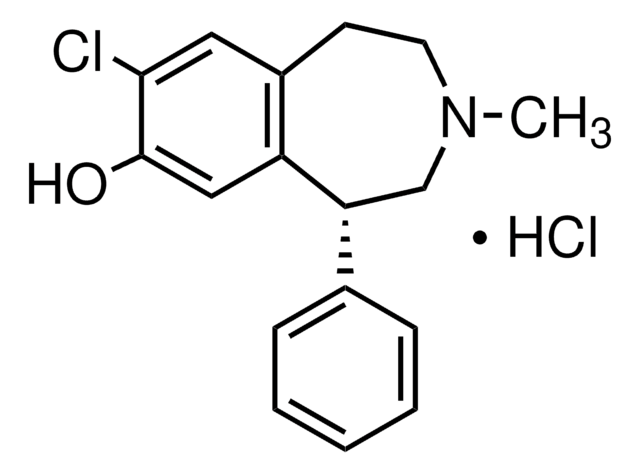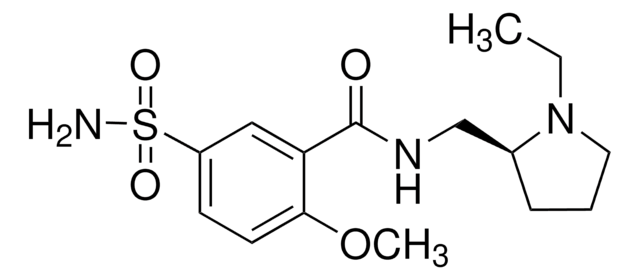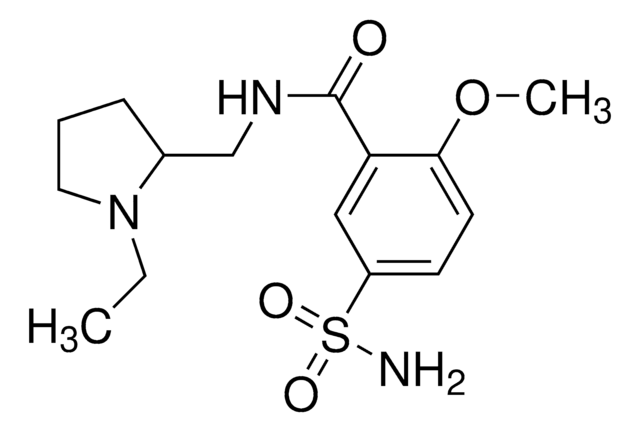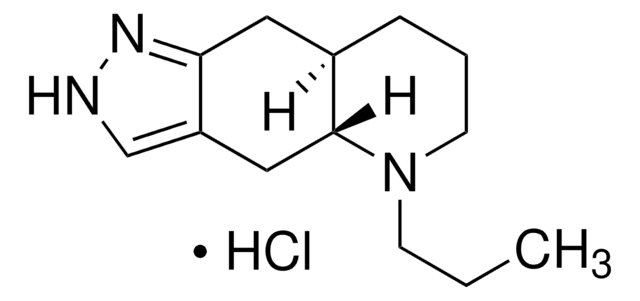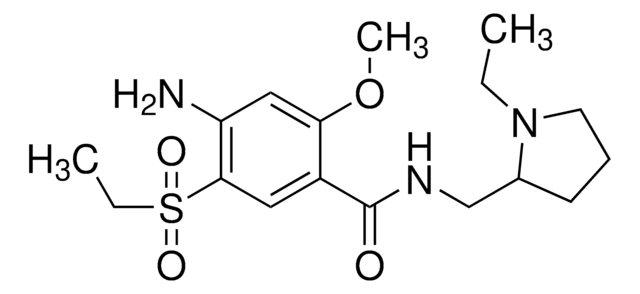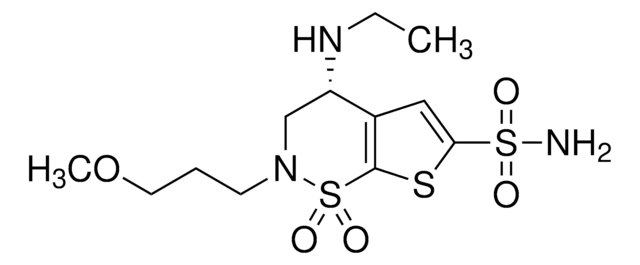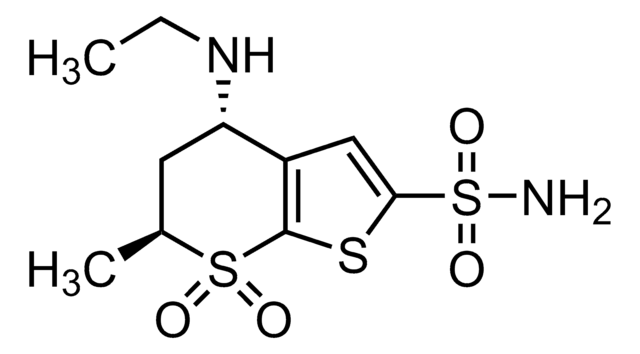S8010
(±)-Sulpiride
Synonym(s):
(±)-5-(Aminosulfonyl)-N-[(1-ethyl-2-pyrrolidinyl)methyl]-2-methoxybenzamide, (±)-N-1-(Ethylpyrrolidin-2-ylmethyl)-2-methoxy-5-sulfamoylbenzamide
About This Item
Recommended Products
form
powder
Quality Level
color
white
solubility
45% (w/v) aq 2-hydroxypropyl-β-cyclodextrin: 8.0 mg/mL
0.1 M HCl: soluble
H2O: slightly soluble
ethanol: soluble
originator
Sanofi Aventis
storage temp.
2-8°C
SMILES string
CCN1CCCC1CNC(=O)c2cc(ccc2OC)S(N)(=O)=O
InChI
1S/C15H23N3O4S/c1-3-18-8-4-5-11(18)10-17-15(19)13-9-12(23(16,20)21)6-7-14(13)22-2/h6-7,9,11H,3-5,8,10H2,1-2H3,(H,17,19)(H2,16,20,21)
InChI key
BGRJTUBHPOOWDU-UHFFFAOYSA-N
Gene Information
human ... CA1(759) , CA2(760) , CA4(762) , CA5A(763) , CA5B(11238) , CA9(768) , DRD2(1813)
Looking for similar products? Visit Product Comparison Guide
Application
Biochem/physiol Actions
Features and Benefits
Reconstitution
Signal Word
Warning
Hazard Statements
Precautionary Statements
Hazard Classifications
Repr. 2
Storage Class Code
11 - Combustible Solids
WGK
WGK 2
Flash Point(F)
Not applicable
Flash Point(C)
Not applicable
Certificates of Analysis (COA)
Search for Certificates of Analysis (COA) by entering the products Lot/Batch Number. Lot and Batch Numbers can be found on a product’s label following the words ‘Lot’ or ‘Batch’.
Already Own This Product?
Find documentation for the products that you have recently purchased in the Document Library.
Customers Also Viewed
Our team of scientists has experience in all areas of research including Life Science, Material Science, Chemical Synthesis, Chromatography, Analytical and many others.
Contact Technical Service
